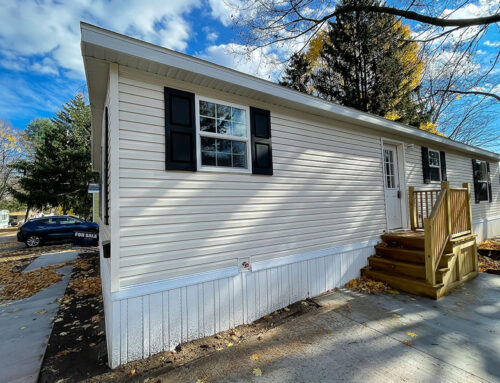I recently came across a popular real estate investing blog that listed the top ten places to invest in New York. Five of those top ten were counties in New Jersey. As a New Jersey resident and real estate investor, I found this curious and decided to dig a little deeper. The timing was perfect; I’d been wondering where to buy investment property in New Jersey that I might not have considered before. If New Yorkers are taking a closer look at the Garden State, then so should I. What I uncovered surprised me.
New Jersey: The Place to Buy Investment Property?
New Jersey took a big hit during the recession and it’s been a long, slow rebound. Though most of the state is recovering, the foreclosure rate remains high–the 13th highest in the country–indicating many homeowners are still struggling to pay their bills. This large inventory of foreclosed homes makes New Jersey an attractive place to buy an investment property.
On the flip side, some homeowners are doing what they can to stay in their homes longer, hoping property values will increase. This, coupled with the limited amount of new construction happening statewide, appears to be creating a decline in inventory, especially in areas such as Buena, Ridgefield Park, and Glen Ridge.
In spite of a slower-paced recovery and inconsistent statewide inventory, New Jersey seems poised to grow into the place to invest in real estate, and not just for New Yorkers. But there are things that may impact the real estate market as we move in that direction. In deciding where to buy investment property in New Jersey, we should first take a look at a few key aspects of our economy.
Taxes
The recent tax revaluation for Jersey City, a major hub for real estate growth, will cause ripples in the market. Long-term homeowners, many of whom are only paying taxes on a fraction of what their home is worth, will be hit the hardest. These tax hikes could push many people over the edge and into financial distress. This presents an opportunity for investors to buy from distressed homeowners before their finances, and their homes, fall into further disrepair.
Job Growth
Job growth throughout New Jersey remains uneven. Wages declined steeply during the recession and have been slow to recover. Layoffs from major corporations have also continued, putting the squeeze on homeowners and would-be homeowners alike throughout the state. On the other hand, many companies–Subaru and TD Bank, for example–have moved into areas like Cherry Hill, creating jobs, thriving local communities, and a wave of new residents. Such areas are ripe for investors who want to buy in a hot real estate market to both accommodate its population growth and contribute to its economic growth with more jobs.
Transportation
Demand also continues to increase for areas with access to public transportation going into the larger, more expensive hubs of Philadelphia and New York. Many potential homebuyers who work in these cities are priced out of living there, so the desire for an urban-adjacent option is strong. Existing New Jersey residents in search of better-paying work also opt to move to these communities in order to gain access to opportunities across state lines. This will naturally increase the demand for housing, and for real estate investors capable of meeting that demand through newly renovated, homes.
Promising Areas to Buy in New Jersey
Some of the cities showing the most potential for investment opportunities include Jersey City, Newark, and Hoboken. Each continues to show signs of economic and population growth, pointing toward an expanding supply of future homebuyers. Let’s take a closer look at what makes these areas so attractive to would-be residents and so promising for investors.
- Jersey City. Tax increases are likely to create opportunities to purchase discounted houses from distressed homeowners. Once renovated, these properties may bring good returns since, over the next three years, home prices in Jersey City are expected to rise by 12%, according to Forbes. With easy access to New York City and an influx of new business development, Jersey City will remain attractive to buyers on both sides of the river.
- Newark. Alongside Jersey City, Newark ranked in the top 25 of single-family residence (SFR) rental growth market in the nation, according to ATTOM Data Solutions. It’s no wonder: the crime rate is at its lowest in 50 years, new businesses like Whole Foods are moving in, and it’s home base to several schools like Rutgers University. Newark’s up-and-coming status, efforts at attracting more business, and direct access into Manhattan are fueling a population boom eager to buy. This may be the best place for a buy-and-hold strategy.
- Hoboken. In spite of steep housing prices, Hoboken holds the strongest sales in the state. The inflow of new business, access to good schools, an ever-expanding art and music scene, and proximity to the Big Apple keep Hoboken in high demand. As such, opportunities for buying, renovating, and selling distressed properties have the potential to provide a substantial return on investment when it’s time to sell.
Of course, as the real estate market evolves in New Jersey, so will the where and when to invest. That’s why after all of my digging, I thought there’s got to be a better way to determine where to buy property that keeps me ahead of the competition. Becoming an independently owned and operated HomeVestors® franchisee turned out to be the best way to move my real estate business forward.
No surprise there. HomeVestors® has been helping investors revitalize communities since 1996. The well-known “We Buy Ugly Houses®” national campaign and lead generation tools help me to find motivated sellers without sorting endlessly through top ten lists and making guesses about the market. I now know where to buy investment property in New Jersey no matter the trends, and take pride in helping my home state continue to grow. If you’re ready to say the same, contact HomeVestors® today.
Each franchise office is independently owned and operated.
Contact
"*" indicates required fields





